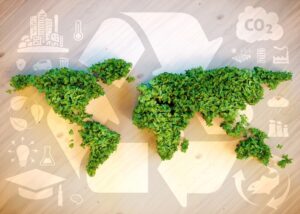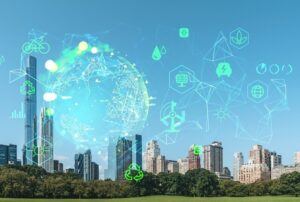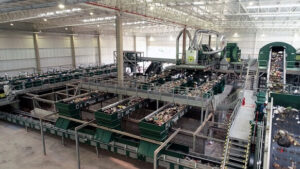That Recycling is a very efficient way to reduce the amount of raw material extracted from the environment is already a known fact (see our article on recycling to find out more), but transforming habits to correctly separate the waste and have access to the structure minimum (selective collection) to forward this waste correctly is another story.
According to the Panorama of Solid Waste in Brazil 2021 by the Brazilian Association of Public Cleaning and Special Waste Companies (ABRELPE) a quarter of Brazilian cities (1400 municipalities) do not haveno public policy on selective collection, 4145 municipalities have some initiatives but still insufficiently, which causes the loss ofat least R$ 14 billion every year in recyclable waste disposed of in landfills and irregular dumps.
OVERVIEW OF RECYCLING IN BRAZIL
The Urban Solid Waste Management Diagnosis in Brazil indicates that of the more than 80 million tons of solid waste generated every year, 27.7 million are dry recyclable waste, with only 4% of the totalintended for recycling. Another survey also indicates that although 77% of Brazilians know that the vast majority of plastics are recyclable and that 73% of cities in the country have some sort of selective collection initiative, 75% of Brazilians still do not separate waste at home.
Within this reality, there are still different recycling potentials for each type of material, according to the structure and technology available and the market interest in the material.
According to the Panorama of Solid Waste in Brazil 2021, the dry recyclable waste produced here is mostly composed of plastics (16.8% or 13.8 million tons/year), paper and cardboard (10.4% or 8. 57 million tons/year), glass (2.7% or 2.26 million tons/year), metals (2.3% or 1.89 million tons/year) and multilayer packaging (1.4% or 1.15 million tons/year), indicating priorities for public policies to act more specifically in the recycling process of each type of material.
RECYCLING LEGISLATION IN BRAZIL
One of the first public policies aimed specifically at the issue of recycling and integrated waste management in the country was the 2010 National Solid Waste Policy (PNRS), which established a legal framework for sustainability. The PNRS defined, among other measures, responsibility for the production chain and consumption guided by the life cycle of products using reverse logistics and cooperation between sectors of the economy.
The PNRS was a great advance, but the guidelines present in the law were still very generic, so little progress was made in practical aspects.
In 2021, law 14,260 was enacted, complementing the PNRS, which includes tax incentives for projects that stimulate the recycling production chain through the creation of Investment Funds for Recycling Projects (ProRecicle) and the National Commission for Incentive to Recycling (CNIR), designed to establish guidelines for recycling activities.
RECYCLING CREDITS
Another important mechanism in advancing the structuring of recycling in Brazil are the recycling credits, they emerged with the intention of strengthening and complementing previous laws, bringing a great tool for valuing reverse logistics through credits generated from tracking sales invoices issued to the recycling industry.
WHAT’S MISSING THEN?
Analyzing the information above, the enormous recycling potential that has not yet been explored in the country is clear, it is also possible to observe an evolution in terms of public policies and incentives for this potential to be explored, but the popularization of these tools is still in its initial phase, with few initiatives taking place. It is necessary to spread these new possibilities and the commitment of local governments to adhere to these tools so that the 800 thousand workers who work in the area can improve their quality of life and manage to live with dignity.
Apart from the institutional work, there is a need for greater engagement of the population with the theme, today Brazilians still do not see the separation of waste at the source as important and also show little interest in integrating in the collective management of waste, that is, there is a lot of awareness and Environmental Education work to be done. Doing the homework, it is expected that this picture will change in the coming years, making the country a reference in recycling in the world.



